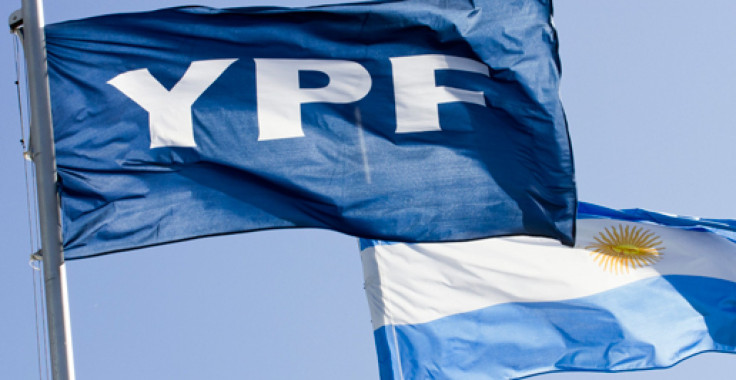YPF Stock Drops 51 Percent After Nationalization By Argentina

So much for trying to keep the money in the country. Argentinean oil giant YPF’s (NYSE:YPF) value on Wall Street has dropped 50 percent since 2011. That's after President Cristina Fernández de Kirchner expropriated in early 2012 the controlling stake in YPF owned by Spanish company Repsol (MCE:REP).
In 2011, the average price of the stock was $41.6. Today, it is less than half, currently at $21.45 despite a slight rise in prices on Friday, when shares gained 6 percent. The average target price by analysts in the last three months was $16.75, according to Bloomberg.
YPF has not met the goals of the plan that it agreed to when it was nationalized from Repsol. The company has only started 38 oil explorations, 24 percent less than promised in the plan. Furthermore, the results from the explorations were much inferior than in previous years, with a 10 percent success rate, as opposed to a 36 percent success rate when YPF was managed by Repsol.
Production fell 0.4 percent in 2012, though analysts calculate that if the strikes of 2011 are not taken into account, the drop in production would be 2.6 percent.
Investment in the Argentinean company grew a modest 12 percent in comparison to 2011, even though it was the promise of an increase in foreign funds that drove Kirchner to expropriate the company.
Repsol and YPF have been embroiled in a legal conflict since the expropriation; the conflict has expanded to other international companies that have been considered for partnerships with YPF, like U.S. giant Chevron (NYSE:CVX).
YPF’s CEO Miguel Galuccio said that he expects the conflict to be resolved before the end of the year.
© Copyright IBTimes 2024. All rights reserved.











